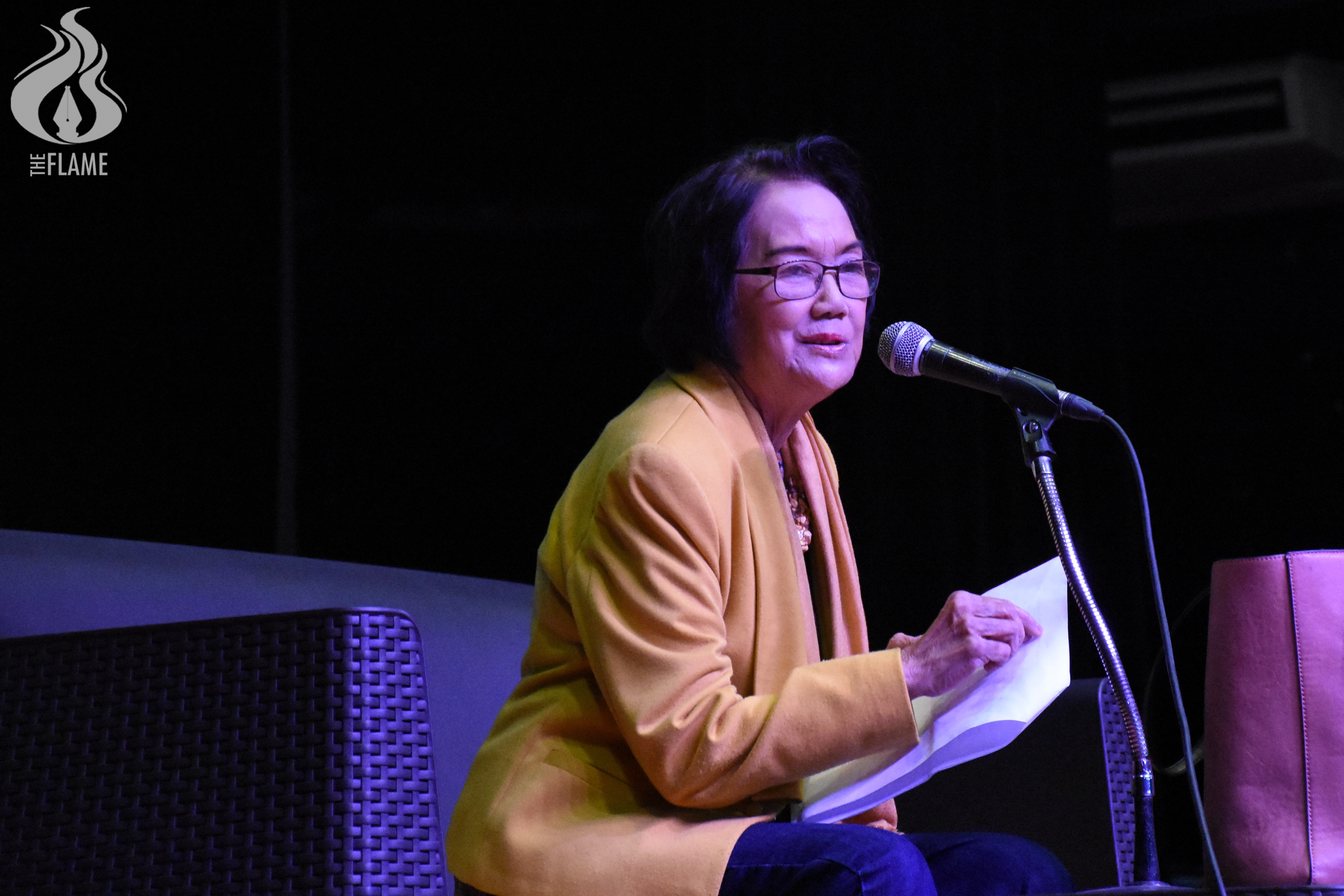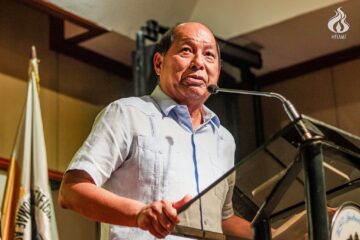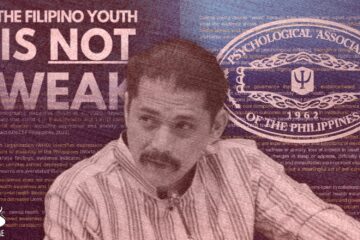
THOMASIANS MUST continue to listen to the stories of those who experienced the horrors of martial law to understand the history of the country, a former member of the National Historical Commission of the Philippines said in a lecture held Friday.
“Mayroon talagang mga nangyari na maraming hindi naapektuhan pero ‘yung mga kakaunti, sila ang nagdadala ng direksyon sa ating bayan para tayo’y tunay na lumaya,” Fe Mangahas said.
Mangahas, a history professor during the term of late strongman Ferdinand Marcos, said there was censorship imposed on their lectures in class. “[N]akatanim na sa mga klase namin ang mga [miyembro ng] intelligence [group] para bantayan kung ano ang mga tinuturo namin.”
There was no writing of Philippine history during the martial law but a rationalization of a “new society,” she claimed.
“Paano natin isusulat ang kasaysayan natin? Okay lang po ‘yung mga hindi nasaktan noong martial law. Okay lang po kung ganoon ‘yung pananaw nila; hindi ko sila masisisi. Pero sana naman, pakinggan nila kami na kakaunti who really experienced the violence of martial law,” Mangahas said.
Mangahas and her husband left their respective professions during the martial law to join the underground movement, which led to their imprisonment.
Despite the atrocities during Marcos’ regime, the former history professor hopes that such event will not happen again in the present administration.
“Noong time ni Marcos, wala na siyang nadinig. [T]akot kasi nga naman [‘yung mga tao at] sobra ‘yung repression, isa lang ang media. ‘Wag naman sana magkaganyan under the Duterte regime,” Mangahas said.
Data from Amnesty International revealed that there were approximately 70,000 people imprisoned, 34,000 tortured, and 3,240 killed during the martial law.
The forum titled The Kasaysayan Lectures Part 1: State of Historical Writing During Martial Law and Post-Martial Law Era was held at Albertus Magnus Auditorium was organized by the UST History Society. F – Maria Eden T. Dino



